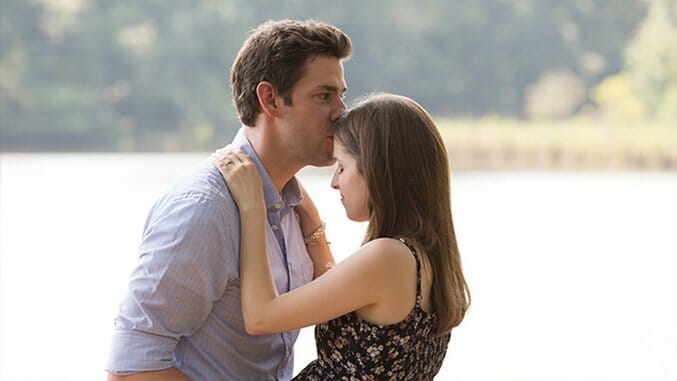The Hollars

Don’t think of John Krasinski’s new film, The Hollars, as an example of actorly vanity or celebrity self-indulgence. Think of it simply as a bad film. It’s fashionable to greet projects either written or directed by screen performers sans mercy, and to critique them as evidence of ego, but all art is ego-driven, so you’re better off kvetching about rain being wet. In the case of The Hollars, rain is caustic, too, but also harmless, as most quirky indie comedies sent down the conveyor belt at the quirky indie comedy manufacturing plant tend to be. Krasinski’s film irritates the soul as sulfates irritate the skin—though we should at least should get some honest blistering out of it.
That’s the problem with The Hollars: It’s disingenuous. None of its parts feel authentic or even remotely original. Dysfunctional families have been a popular fixture in film since Julien Duvivier made Poil de carotte in 1925, though there’s perhaps an argument to be made that we’re more attached to maladjusted households on the big screen today than we have ever been. If so, and if Krasinski made The Hollars to tangle with unspoken familial issues of his own, then we’re led to wonder which parts of the film highlight those experiences, and which he came up with just to satisfy the faux-acidity quotient expected in any movie that deals with terminal illness, failed parental bonds, pregnancy scares, economical woe, teenage nostalgia and wound up siblings.
-

-

-

-

-

-

-

-

-

-

-

-

-

-

-

-

-

-

-

-

-

-

-

-

-

-

-

-

-

-

-

-

-

-

-

-

-

-

-

-








































